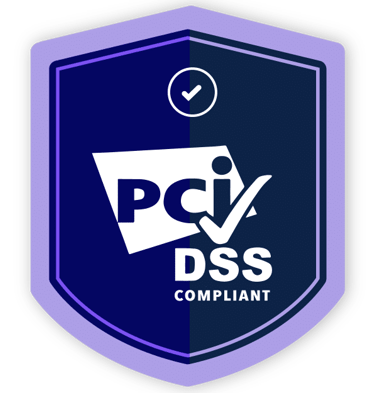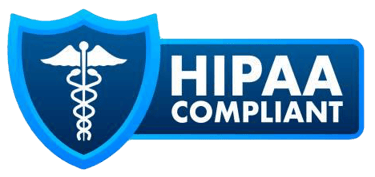Hospice Survey Essentials: Documentation and Staff Records Required During Compliance Reviews
Be fully prepared for your next hospice survey. Discover the full list of essential documents, staff roles, policies, and certifications that surveyors request during compliance inspections.


Hospice providers are held to high standards of care, compliance, and documentation. During a federal or state survey, especially at the entrance conference, surveyors will ask for a comprehensive set of records, certifications, and policy documents to evaluate how your agency delivers services and maintains compliance with federal regulations.
Being proactive in collecting and organizing these materials ensures your agency demonstrates transparency, quality, and accountability from the start.
Key Personnel and Role-Based Information
Surveyors will want to understand your agency’s leadership structure and how responsibilities are distributed across care teams. Prepare the following:
• RN Coordinators List
A complete list of registered nurse coordinators who oversee the coordination of hospice services and the execution of the interdisciplinary plan of care.
• Key Staff Contacts
Names and titles of staff members who are most knowledgeable in these areas:
Hospice aide and homemaker services
Volunteer coordination
Spiritual/pastoral care
Infection control and QAPI (Quality Assessment and Performance Improvement)
Staff training and education
Clinical supervision and bereavement services
This list helps surveyors direct questions and assess operational oversight.
Training and Competency Documentation
Ensure you have the following training-related records:
• Hospice Aide Training and Evaluations
Initial training documentation
Competency assessments
Ongoing in-service education records
• Core Services Waivers
If your agency has received a waiver for core nursing services, or for therapy or dietary counseling services (such as physical therapy, speech-language pathology, occupational therapy), include the approval documents with issue dates.
Agreements and Contracts
To evaluate how external providers are integrated into your care model, surveyors will review:
• Active Contracts
Agreements with third-party service providers such as:
Skilled nursing facilities (SNF/NF)
Intermediate care facilities for individuals with intellectual disabilities (ICF/IIDs)
Durable medical equipment (DME) suppliers
Pharmacies
Inpatient hospice facilities
• Facility Agreements
Written agreements with long-term care facilities where your hospice agency provides services.
Laboratory Services and CLIA Compliance
If your agency performs any laboratory testing, you must show compliance with Clinical Laboratory Improvement Amendments (CLIA) standards. Be ready to present:
A valid CLIA Certificate of Waiver
Additional CLIA documentation depending on the testing level, such as:
Provider-performed microscopy certificate
Accreditation or compliance certificates
Registration certificate if applicable
Also include certificates or licenses for any outside clinical laboratories that handle your agency’s specimens.
Policies, Procedures, and Compliance Records
These documents serve as the foundation of your operational integrity. Surveyors will request:
• Emergency Preparedness Plan
Include documentation of emergency drills or preparedness exercises conducted as part of CMS requirements.
• Patient Admission Materials
Provide examples of the materials given to patients upon hospice admission, such as:
Explanation of services
Rights and responsibilities
Contact information for emergencies or grievances
• Abuse Prevention Protocols
Policies on preventing abuse, neglect, and exploitation
Documentation of staff training in these areas
• QAPI Records
Evidence of participation in Quality Assessment and Performance Improvement activities, including:
Goals and improvement initiatives
Infection control monitoring and mitigation strategies
Summary of recent performance improvement projects
Key Policies to Have Available
Surveyors will review your agency’s written policies for the following operational areas:
Advance directives and patient rights
Interdisciplinary coordination and care planning
Infection prevention and control
Clinical documentation and recordkeeping
Safe handling and disposal of controlled substances
Equipment maintenance and usage
Pain and symptom management protocols
Staff training programs and procedures
Emergency preparedness and crisis response
Inpatient Care Records
If your agency provides short-term inpatient hospice care, include documentation that reflects:
Eligibility assessments
Medical necessity documentation
Records of care provided during inpatient stays
Coordination of discharge back to home or another care setting
Conclusion: Be Ready, Stay Compliant
A well-prepared hospice agency demonstrates not just regulatory compliance—but a deep commitment to high-quality, compassionate care. Having these records readily accessible, organized, and up-to-date gives your team confidence during any hospice survey and reinforces the trust of patients and partners alike.
Links:
§418.58 – QAPI Condition of Participation
Infection Prevention and Control §418.60 – Infection Control
Emergency Preparedness Requirements §418.113 – Emergency Preparedness
Clinical Records & Documentation §418.104 – Condition of Participation: Clinical Records
Drug/Controlled Substance Management §418.106 – Drugs, Biologicals, and Controlled Drugs: Management and Disposal
CLIA Laboratory Requirements
Clia Overview Page







